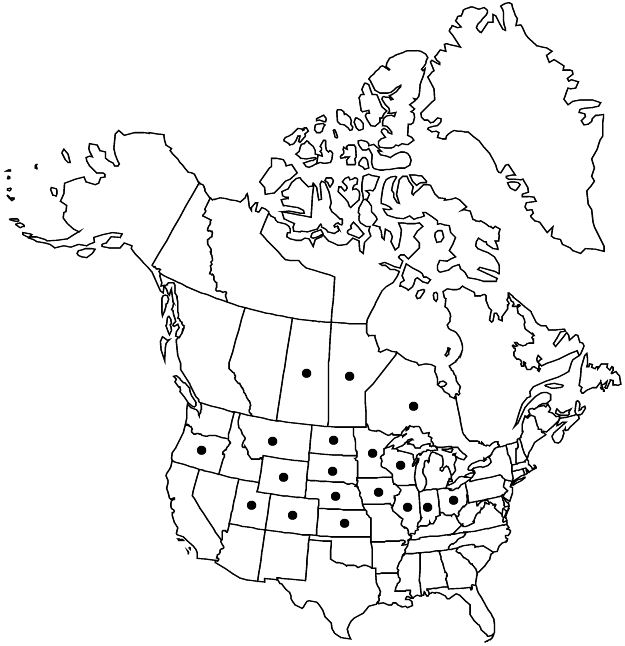Prunus pumila var. besseyi
Rep. (Annual) Vermont Agric. Exp. Sta. 12: 239. 1899.
Stems usually erect-ascending, sometimes sprawling with ascending tips, 1–7(–15) dm; twigs usually glabrous, sometimes sparsely puberulent. Leaf blades elliptic, oblanceolate, or obovate, 2.5–8 × 0.8–2.2(–2.9) cm, lengths ca. 2.9 times widths, base cuneate, apex short-acuminate, acute, or obtuse. Drupes subglobose, 8–12 × 5–12 mm; stones subglobose to ovoid, 7–9 × 5–7 mm.
Phenology: Flowering Apr–May; fruiting Jul–Aug.
Habitat: Sandy prairies, oak savannas, rock outcrops
Elevation: 200–1700 m
Distribution

Man., Ont., Sask., Colo., Ill., Ind., Iowa, Kans., Minn., Mont., Nebr., N.Dak., Ohio, Oreg., S.Dak., Utah, Wis., Wyo.
Discussion
Variety besseyi has been introduced west of its native range as an ornamental and fruit bearer for the home garden, where its adaptation to cold winters and hot, dry summers is a valuable asset. Cultivars were developed by breeders at the Morden Experimental Station in Manitoba and at the University of South Dakota.
Selected References
None.
